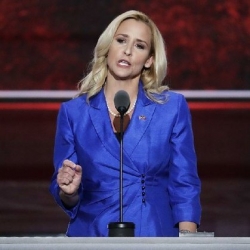
Arkansas Attorney General Leslie Rutledge will decide whether the casino proposals can move forward.
Arkansas voters may go to the polls in November 2018 to decide the fate of two prospective casino developments. At present, the Arkansas attorney general is deciding whether one or both of two competing casino development plans will appear the midterm year’s primary season in the United States.
As residents get ready to vote on the issue of whether or not to legalize casinos in four Arkansas counties, the voters may soon face another prospect: ads highlighting both sides of the casino debate. The issue at hand is about what type of casino the state wants to see, rather than whether the state needs another gambling option or not.
At present, the decision is in the hands of the Arkansas Department of Justice. If the AG approves, then both sides will have to gain enough petition signatures to get the casino plans on the November ballot. If that happens, then the Arkansas airwaves might fill with casino referendum ads.
Two Groups, Two Sets of Casinos
Early last week, Arkansas Wins in 2018 Inc. filed paperwork with the Arkansas Ethics Commission to campaign for a proposed constitutional amendment that would legalize casinos in four Arkansas counties: Benton, Boone, Miller, and Pulaski. Arkansas Wins’ ballot initiative is the second attempt to get a gambling expansion proposal on the November ballot.
Driving Arkansas Forward is another group that hopes to put up proposal on the November 2018 ballot. The second group’s aim is towards legalizing casinos in Jefferson and Pope counties.
Driving Arkansas Forward’s secondary goal is to allow racetrack casinos (racinos) at the already existing Oaklawn horse track located in Hot Springs, as well as the Southland greyhound track in West Memphis. Both race tracks already offer electronic “games of skill”, which many Arkansans consider casino type games.
Before the two ballot initiatives can go forward, each of the two’s proposed constitutional amendment’s language must be approved by the attorney general. After that, the competitors must work towards gathering thousands of signatures from registered voters in order to qualify for the 2018 November ballot.
2016 Casino Referendum
Back in 2016, competitors took the stage with proposals for casino legalization throughout the state. However, the Supreme Court quickly shut down the idea. One of the officers for ‘Arkansas Wins’ in 2018 is hoping he does not find himself in a familiar end as he was part of the original 2016 proposal.
A group funded by Southland and Oaklawn successfully filed a lawsuit challenging the 2016 measure. If the ‘Driving Arkansas Forward’ measure is approved, the state’s two racetracks would benefit. Killing the measure by Arkansas Wins is therefore pivotal.
The concern of Driving Arkansas Forward against their rival’s 2018 proposal is similar to those of the 2016 measure. They have an issue with an out-of-state entity wanting to write themselves into Arkansas’ constitution – or at least that is how the gaming interests behind the in-state ballot initiative are selling their proposal in the courts and the public arena.
Nate Steel on Driving Arkansas Forward
Nate Steel, a former state Rep. and current counsel for Driving Arkansas Forward, “The Driving Arkansas Forward amendment gives communities a real voice in the process and ensures a transparent, merit-based selection of casino operators. It also recognizes and protects two great Arkansas institutions, Oaklawn and Southland, that have created hundreds of jobs and millions of dollars in tax revenue for our State.”
No one from Arkansas Wins in 2018 has responded in public to Steel’s criticism. Last week, an attorney for the group said a more formal announcement will be made later.
The two groups have found common ground in where their revenues are headed within the state. Each of their proposals appear to be aimed at winning voters over by committing the majority of casino tax revenues to go towards the state’s highways, which are seen by most residents as needing significant repairs.
Advertising Casino Proposals
In the past, political battles of those in favor and opposed to the measure have taken over the airwaves. The end result often has been voter fatigue. With two competing casino initiatives afoot – and both trying to make the other look bad — some wonder if, this time, the result will not be voter confusion.
Also, the gaming interests behind both proposals could flood the state with advertising dollars, overshadowing top races and their political advertising. In the 2016 effort, both supporters and opponents of the casino measure spent more than $2 million on television ads over the issue.
Arkansas Gambling Industry
Arkansas, despite their conservative politics, offers a wide variety of gambling options, including lottery tickets, video poker, charitable bingo and betting at race tracks.
The two groups will aim their campaign at figuring out the best approach for introducing casinos and appealing to the conservative state that already has options available to them.
Family Council Action Committee
The Family Council Action Committee is a conservative group that opposes both casino proposals. The committee began their efforts against the two groups by speaking out against the Driving Arkansas Forward proposal before the latest measure occurred.
Jerry Cox, president of the Family Council Action Committee, told a local media outlet, “What you have is you have these people that want to make money off of poor people here in Arkansas dressing up their measures by claiming they’re going to be doing something benevolent for the people of Arkansas like build a road or some other things.”
“The reality is they’re just looking at how to make money at our expense.”
Update: Both Proposals Fail
In a statewide vote on Tuesday, April 10, both proposals failed to gain the approval of the Arkansas attorney general. Neither casino plan will be on the November 2018 midterm ballot.
